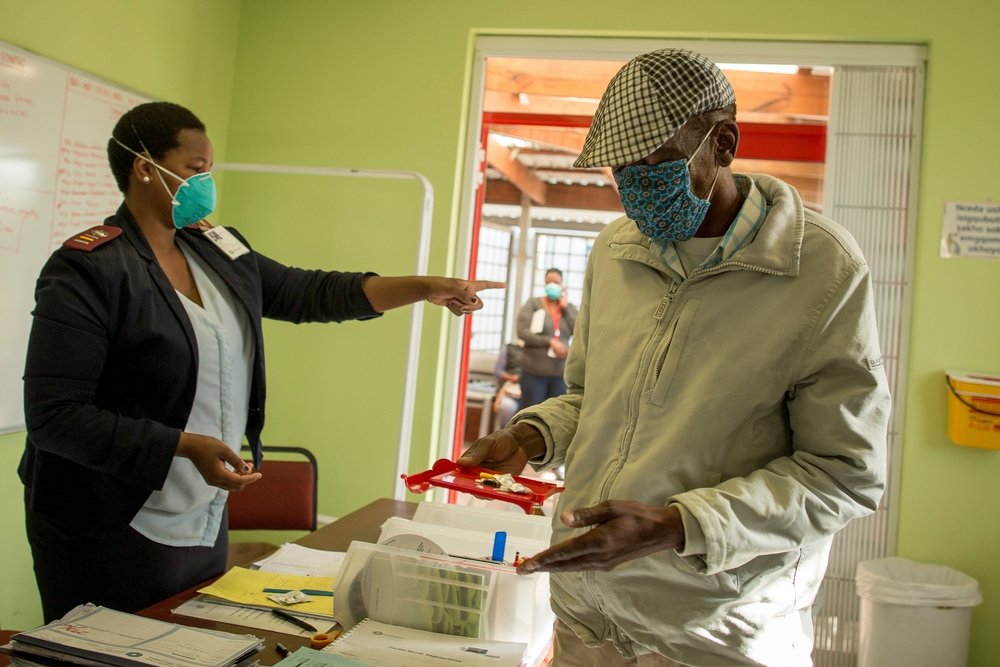A family man has a second shot at beating XDR-TB with the newest DR-TB drugs.
Simphiwe’s current regimen: Delamanid, bedaquiline, linezolid, levofloxacin, terizidone, clofazimine, ethionamide
In 2011, Simphiwe Zwide’s wife Nomonde contracted tuberculosis. Simphiwe spent more than a week with her in Cape Town’s Groote Schuur hospital. “I wasn’t using a mask. When she came out of hospital, I fell sick,” he says.
Soon after, Simphiwe was diagnosed with multi-drug resistant TB. “I probably got MDR-TB there,” he says.
“I couldn’t eat, my body was painful, my throat was sore – I thought I had a virus. My wife tried to cook – sour milk and maize meal. I couldn’t swallow. I had to drink many cups of water. I was sweating – I couldn’t walk even couple of metres. “
“My wife was very supportive of me. She would leave me taxi money and go and stand in the hospital queue for me from 5am.”
As a result of the care and medication, Simphiwe began to feel his health returning. “I felt like I could work again,” says the 43-year-old from Khayelitsha who is his family’s only breadwinner.
“We were all suffering. I was the only one who could work for my family. I was taking kanamycin injections which meant that I had to attend the clinic every day and this was preventing me from finding a job.”
Simphiwe’s need to find work saw him travelling between Cape Town and Johannesburg for the next few years.. As a result his MDR-TB treatment regimen fell to the wayside.
Dr Jennifer Hughes, MSF’s TB doctor, says Simphiwe was in line to receive a strengthened treatment regimen for pre-XDR-TB in 2012, but before he was able to start the new medications, “he disappeared from Khayelitsha… we heard later that he’d gone to Johannesburg maybe looking for work. He was discharged as ‘lost from treatment’.”
“It’s normal for people to find the 24-month treatment difficult to stick to,” Dr Hughes says. “They are often forced to stop work because the treatment makes them drowsy and nauseous.”
Simphiwe continues: “By January 2016, I started to get sick again. I couldn’t work like I’m used to. I came back to Khayelitsha,” he says.
When Simphiwe finally returned to his local clinic in June this year, he was short of breath and very ill. Repeat sputum culture results revealed he now had XDR-TB, which meant that he was eligible for the new drugs, bedaquiline and delamanid.

Simphiwe started his new multidrug regimen, including linezolid and bedaquiline, on 8 October this year. He is now being treated at the local Kuyasa clinic, and has to take up to 26 pills a day to treat his XDR-TB.
On 13 October, a six-month delamanid course was also added to his treatment regimen.
“When I take them [the medicine], I have to sleep the whole day,” Simphiwe says. “But I’m feeling much better. I can’t say I’m 100% but this is only my third month. I know who I am, I’m strong and I want my health back.”
Find out more about MSF's work in South Africa.